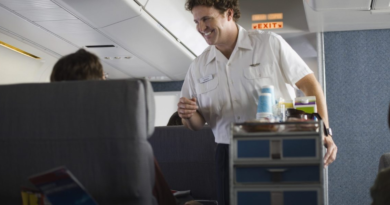London's Royal Opera House plans a new renaissance starting with a name change — and potential Netflix series
London’s Royal Opera House is changing its name and hunting for new commercial partners as it works to fill a multimillion pound funding gap.
From now on, the institution will be known as the Royal Ballet and Opera. The rebrand is part of a mission to boost box office revenue by attracting visitors who didn’t know the Covent Garden organization is also home to the Royal Ballet, says Sophie Wybrew-Bond, the new chief commercial officer, in her first interview in the role. She’s also targeting income from business sponsors who see the opportunity with the dual branding.
“The ballet has been here since 1946, so it’s really a better description of who we are,” says Wybrew-Bond. “We firmly believe by being clear in our expression of what’s here, we’ve got a better chance of driving brand relevance.” She adds: “When you think about our marketing investment, every pound you spend on digital advertising returns at a higher level when the brand mark is more relevant.” The organization says it doesn’t break out the differences in sponsorship between the ballet and opera divisions, and maintains that it wasn’t a factor in the name change.
Later this year, Wybrew-Bond will offer businesses the opportunity to sponsor a series of short documentaries about the Royal Ballet and Opera planned for release on websites and social media channels. Episodes could feature the day in the life of one of its star performers, says Wybrew-Bond.
Brands can also team up with the Royal Ballet and Opera for advertising campaigns. Last November the fashion brand AllSaints introduced a campaign starring four Royal Ballet dancers, one of the company’s first targeted partnerships. Products were created as part of the campaign, including a tote bag, sweatshirt and T-shirt; 10% of sales were donated to the organization.
Finding new revenue streams will be critical for the survival of the Royal Ballet and Opera. In its latest available annual results, for 2022, the Royal Opera House reported a deficit of £4.2 million, on income of £132.7 million. Last fall, Lloyd Dorfman, the organization’s chair and founder of finance exchange Travelex, estimated that the gap was about £15 million ($18.8 million). This year’s anticipated shortfall, the result of the steep public funding cuts that have impacted many UK cultural institutions, has forced the team to get more creative.
“The costs of running this place are going up, and the public subsidies are going down in real terms, so we have to fill that gap,” says Wybrew-Bond.
Measures include expanding its reach on social media sites such as YouTube and targeting streaming platforms to show filmed performances online. Eleven performances next season will be available to view in cinemas. “A platform like Netflix would get the art to broader audiences,” she says.
Rebuilt after a fire in 1856, the Royal Ballet and Opera is home to the Royal Opera, the Royal Ballet and the Orchestra of the Royal Opera House. Like many organizations, it suffered during the pandemic, when theaters were forced to close on and off for more than a year. Since then, regular rail strikes have hurt ticket sales. As a result, the opera house was forced to borrow money from the UK government and cut costs. The organization borrowed £21.7 million from the UK government’s Culture Recovery Fund during the pandemic.
Sales of tickets—which range from £11 to £235, according to Stage, the entertainment magazine—cover just 40% of costs, and the organization has long relied on donors and philanthropic support. The Royal Opera and Ballet’s funding from the Arts Council was cut by 9%, equivalent to £2.2 million.
Wybrew-Bond, who joined earlier this year as the organization’s first chief commercial officer, will start marketing video content ideas in early June, hunting for sponsors among tech firms, fashion brands and financial service companies. These could include a series of videos about costume design, sustainable fabric dying, or the hundreds of light bulbs in the auditorium that require replacing. “We’ve got some pilots that we know certain brands will be interested in because of the types of stories we are telling,” she says.
The CCO also wants to work with local government authority Westminster Council on plans to allow big companies to showcase their branding on the facade of the Royal Opera House. “Sometimes we obviously necessarily have to do work anyway on the building, in which case that gives us the opportunity to address that space with a brand partner or something experiential,” she said.
One of the institution’s trustees, Michael Ward, is managing director at Harrods, which regularly rents out its facade to luxury brands such as Tiffany and Louis Vuitton.
The name change has been announced with the launch of the Royal Ballet and Opera’s 2024-25 season, which includes the world premier of Mark-Anthony Turnage’s opera Festen, and the ballet MaddAddam, based on Margaret Attwood’s trilogy of novels.




